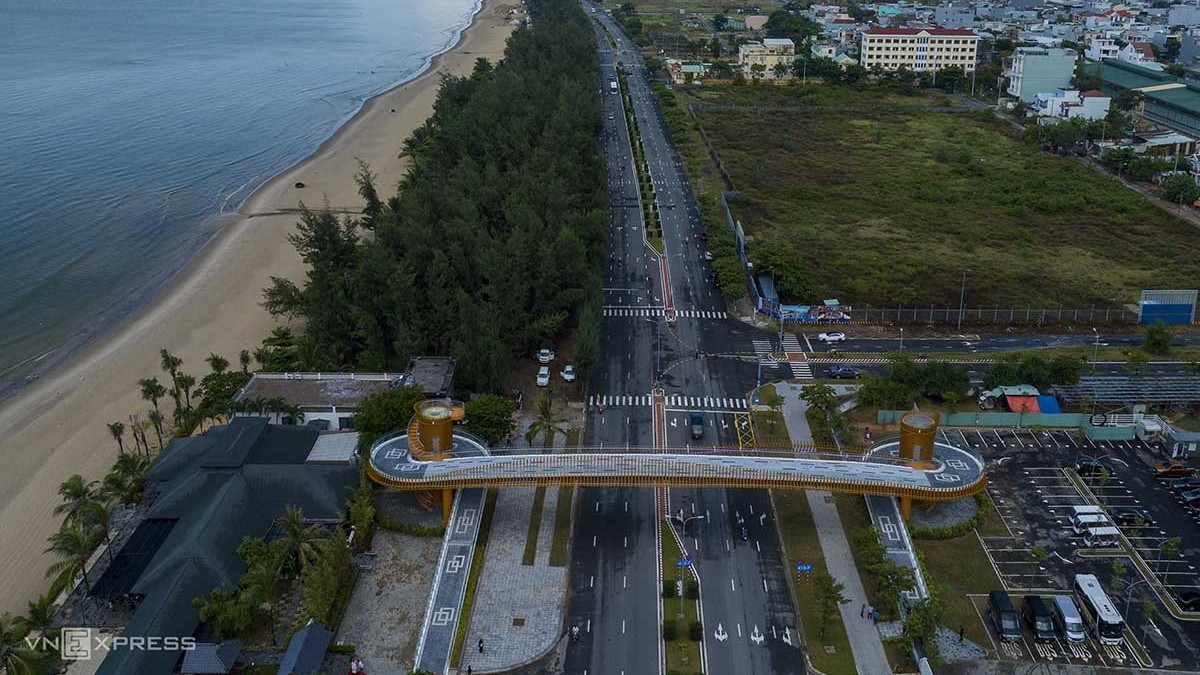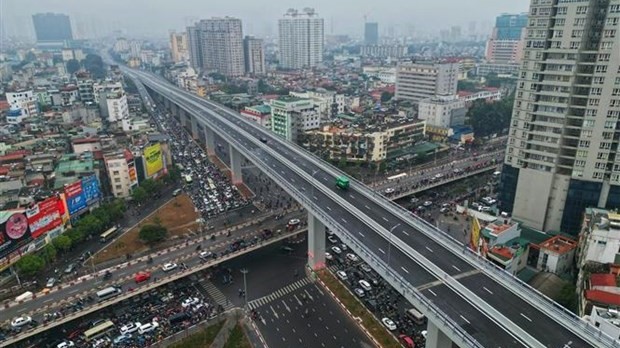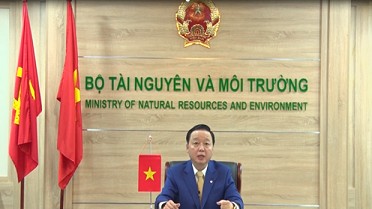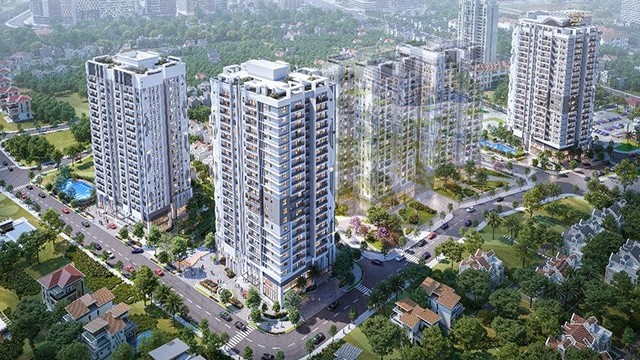
PM attends inauguration of second-phase Vinh Tuy bridge
Latest
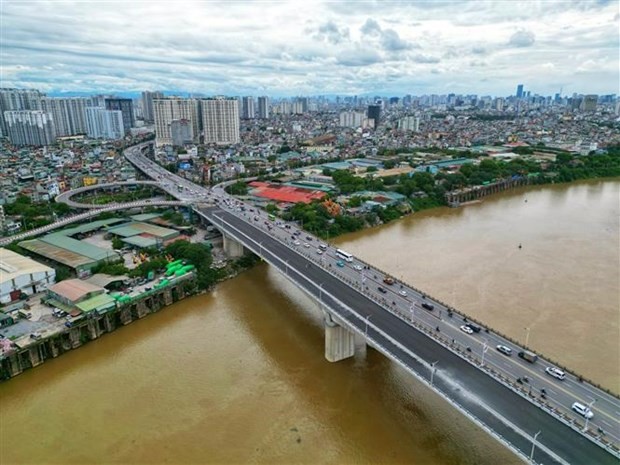 |
| The second-phase Vinh Tuy bridge, which runs parallel with the first-phase bridge, is expected to help ease traffic congestion and facilitate travel between the two banks of the Red River. (Photo: VNA) |
The bridge, which has a length of 3.5km and a width of 19.25m with four lanes, was built with an investment of 2.5 trillion VND (103.51 million USD). Its construction finished after two years and a half, four months ahead of schedule.
The second-phase bridge, which runs parallel with the first-phase bridge, is expected to help ease traffic congestion and facilitate travel between the two banks of the Red River, meeting the rising transport demand between the capital's downtown and its northern and northeastern regions.
So far, Hanoi has constructed eight bridges crossing the Hong River. Under the city’s traffic planning project until 2030 with a vision to 2050, Hanoi will build an additional 10 bridges linking the river’s banks.
Addressing the inauguration ceremony, PM Chinh highlighted the significance of the second-phase Vinh Tuy bridge in settling traffic congestion and completing the belt road system of the city, contributing to the local socio-economic development and paving the way for the formation of a chain of urban areas in the northern region of the capital city.
The Government leader lauded the efforts of relevant agencies and workers in the construction of the bridge despite the impacts of COVID-19, ensuring good progress and quality.
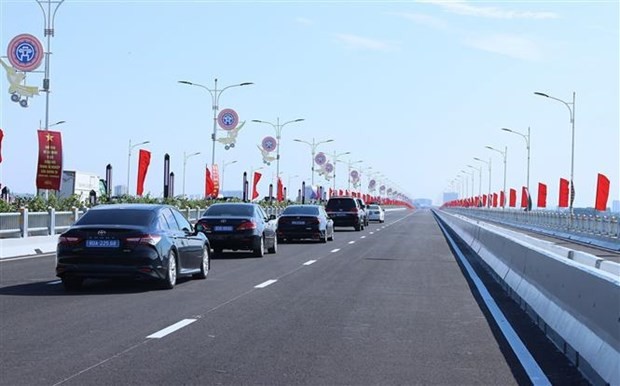 |
| The bridge, which has a length of 3.5km and a width of 19.25m with four lanes, was built with an investment of 2.5 trillion VND (103.51 million USD).PM Chinh underscored that infrastructure development, especially transport infrastructure, is one of the three strategic breakthroughs defined by the Party and State. |
He noted that many large-scale transport projects have been implemented, including those in Hanoi.
He asked the People’s Committee of Hanoi to promptly complete the capital city's master construction planning until 2030 with a vision to 2050 and submit it to the PM for approval.
The government leader also requested ministries, sectors, and localities to work together to speed up the progress of Belt Road No.4 of the Capital Region and start construction of the Hong Ha and Me So bridges in 2024.




